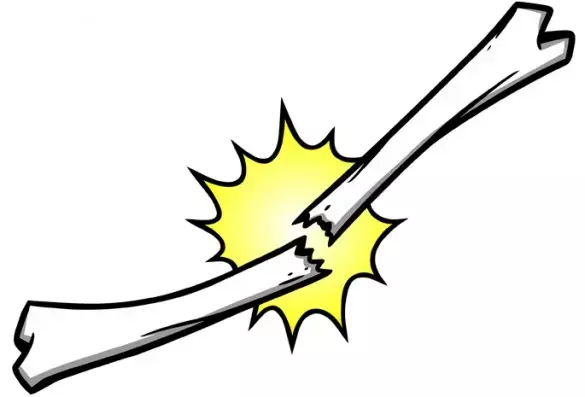- Home
- Medical news & Guidelines
- Anesthesiology
- Cardiology and CTVS
- Critical Care
- Dentistry
- Dermatology
- Diabetes and Endocrinology
- ENT
- Gastroenterology
- Medicine
- Nephrology
- Neurology
- Obstretics-Gynaecology
- Oncology
- Ophthalmology
- Orthopaedics
- Pediatrics-Neonatology
- Psychiatry
- Pulmonology
- Radiology
- Surgery
- Urology
- Laboratory Medicine
- Diet
- Nursing
- Paramedical
- Physiotherapy
- Health news
- Fact Check
- Bone Health Fact Check
- Brain Health Fact Check
- Cancer Related Fact Check
- Child Care Fact Check
- Dental and oral health fact check
- Diabetes and metabolic health fact check
- Diet and Nutrition Fact Check
- Eye and ENT Care Fact Check
- Fitness fact check
- Gut health fact check
- Heart health fact check
- Kidney health fact check
- Medical education fact check
- Men's health fact check
- Respiratory fact check
- Skin and hair care fact check
- Vaccine and Immunization fact check
- Women's health fact check
- AYUSH
- State News
- Andaman and Nicobar Islands
- Andhra Pradesh
- Arunachal Pradesh
- Assam
- Bihar
- Chandigarh
- Chattisgarh
- Dadra and Nagar Haveli
- Daman and Diu
- Delhi
- Goa
- Gujarat
- Haryana
- Himachal Pradesh
- Jammu & Kashmir
- Jharkhand
- Karnataka
- Kerala
- Ladakh
- Lakshadweep
- Madhya Pradesh
- Maharashtra
- Manipur
- Meghalaya
- Mizoram
- Nagaland
- Odisha
- Puducherry
- Punjab
- Rajasthan
- Sikkim
- Tamil Nadu
- Telangana
- Tripura
- Uttar Pradesh
- Uttrakhand
- West Bengal
- Medical Education
- Industry
Researchers develop new biomaterial that helps bones heal faster

DUBLIN -- Scientists have developed a new biomaterial that helps bones heal faster by enhancing adults' stem cell regenerative ability.Material recreates children's superior bone-healing ability in adults' stem cells.
The study, led by researchers from RCSI University of Medicine and Health Sciences and CHI at Temple Street, is published in the current edition of Biomaterials, the highest ranked journal in the field of biomaterials science.
The researchers had previously discovered a molecule called JNK3, which is a key driver of children's stem cells being more sensitive to their environment and regenerating better than adults'. This explains, at least partially, why children's bones are able to heal more quickly. Building on this knowledge, they created a biomaterial that mimics the structure of bone tissue and incorporates nanoparticles that activate JNK3.
When tested in a pre-clinical model, the biomaterial quickly repaired large bone defects and reduced inflammation after a month of use. The biomaterial also proved to be safer and as effective as other drug-loaded biomaterials for bone repair whose use has been controversially associated with dangerous side-effects, including cancer, infection or off-site bone formation.
"While more testing is needed before we can begin clinical trials, these results are very promising," said Professor Fergal O'Brien, the study's principal investigator and RCSI's Director of Research and Innovation.
"This study has shown that understanding stem cell mechanobiology can help identify alternative therapeutic molecules for repairing large defects in bone, and potentially other body tissues. In a broader sense, this project is a great example of how growing our understanding of mechanobiology can identify new treatments that directly benefit patients – a key goal of what we do here at RCSI."
The work was carried out by researchers from the Tissue Engineering Research Group (TERG) and SFI AMBER Centre based at RCSI in collaboration with a team from Children's Health Ireland (CHI) at Temple Street Hospital. The CHI at Temple Street team was led by Mr Dylan Murray, a lead consultant craniofacial, plastic and reconstructive surgeon at the National Paediatric Craniofacial Centre (NPCC), who has collaborated with the RCSI team for a number of years.
"It is very exciting to be part of this translational project in which the participation and consent of the patients of the NPCC at Temple Street –whom donated harvested bone cells- have contributed immensely to this success," said Mr Murray.
"We have now proven that identifying mechanobiology-inspired therapeutic targets can be used to engineer smart biomaterials that recreate children's superior healing capacity in adults' stem cells," said Dr Arlyng Gonzalez Vazquez, the study's first author and a research fellow in TERG.
"We are using the same strategy to develop a novel biomaterial for cartilage repair in adults. A follow-up project recently funded by Children's Health Foundation Temple Street is also aiming to utilise a similar scientific approach to identify if the molecular mechanisms found in children diagnosed with craniosynostosis (a condition where the skull fuses to early and in his brain growth) could be used to develop a therapeutic biomaterial that accelerates bone formation and bone healing in adults."
This project contributed to Dr Arlyng Gonzalez Vazquez earning the highly prestigious "New Investigator Recognition Award" (NIRA) at the Orthopedic Research Society (ORS) Annual Meeting in 2019 in Austin, Texas.
For further reference log on to:
https://doi.org/10.1016/j.biomaterials.2020.120540
Dr Kamal Kant Kohli-MBBS, DTCD- a chest specialist with more than 30 years of practice and a flair for writing clinical articles, Dr Kamal Kant Kohli joined Medical Dialogues as a Chief Editor of Medical News. Besides writing articles, as an editor, he proofreads and verifies all the medical content published on Medical Dialogues including those coming from journals, studies,medical conferences,guidelines etc. Email: drkohli@medicaldialogues.in. Contact no. 011-43720751


